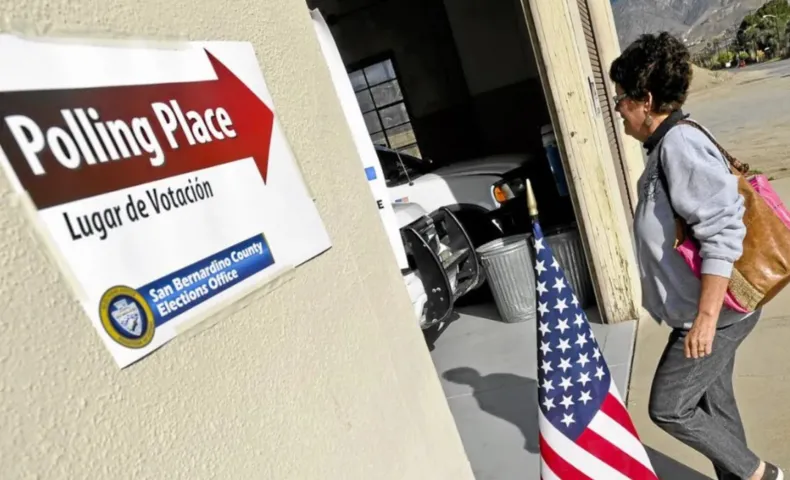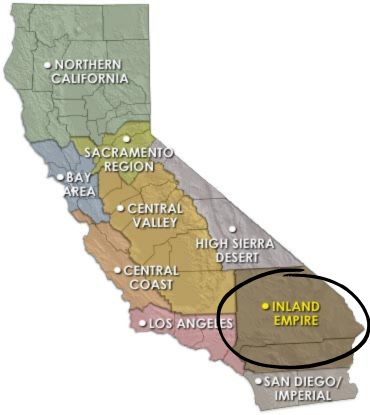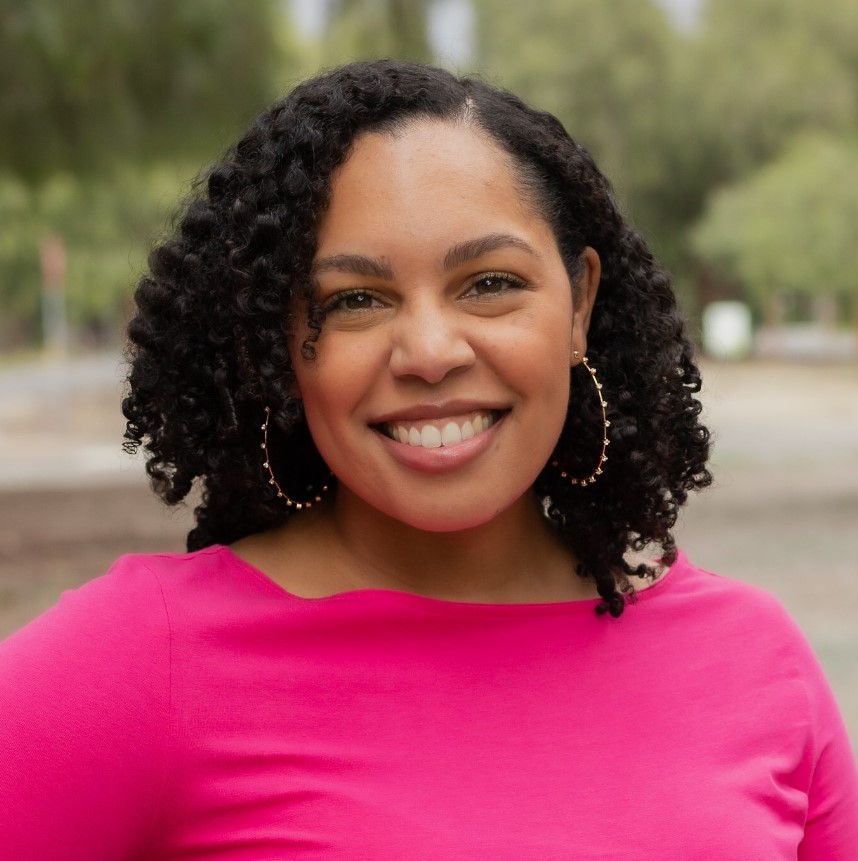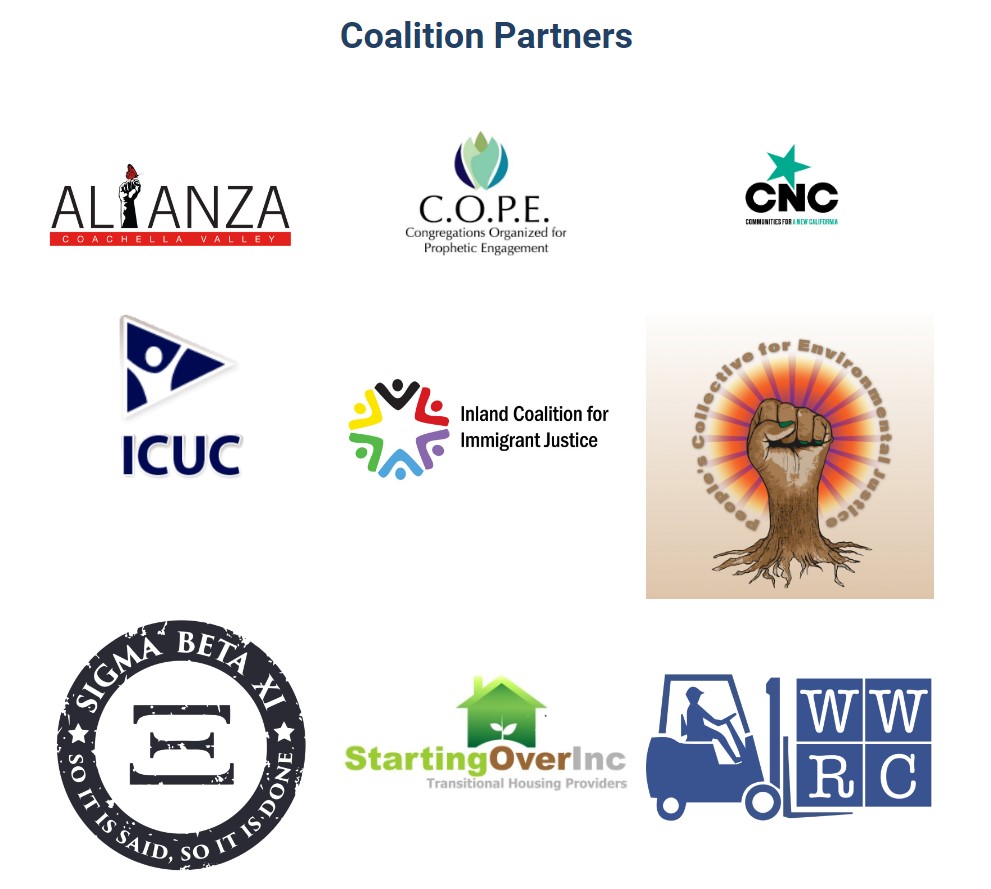 Photo Credit: Rachel Luna
Photo Credit: Rachel Luna
Redefining Civic Engagement in California's Inland Empire
The Inland Empire region in Southern California is a diverse, rapidly growing area with 4.7 million residents, including more than one million immigrants. The geographic region (Riverside and San Bernardino counties) is larger than 11 states and has a greater population than 26 states. Despite its significant size, and the fact that it is home to many communities and populations that have historically been underrepresented in government and politics, the Inland Empire has lagged other areas in California when it comes to investments in voting and civic engagement.
one million immigrants. The geographic region (Riverside and San Bernardino counties) is larger than 11 states and has a greater population than 26 states. Despite its significant size, and the fact that it is home to many communities and populations that have historically been underrepresented in government and politics, the Inland Empire has lagged other areas in California when it comes to investments in voting and civic engagement.
The Inland Empire United Education Fund (IEUEF) is working to change all that. Created in 2012, the organization is partnering with community-based groups across the region to build the power and voice of historically disenfranchised communities.
IEUEF’s growth comes at a critical time, with lots of new opportunities as the region changes politically and demographically. Following the 2021 redistricting process, the Inland Empire has an unprecedented opportunity to achieve more representative leadership, with the number of Latino majority districts increasing to seven assembly districts, four senate districts, and four congressional districts. This year, the Inland Empire will once again have one of the most closely watched congressional races in the entire country, with the 41st district being one of the few “toss up” races that could decide control of the House of Representatives.
 The IE United Education Fund is one of several civic engagement tables (a network of nonpartisan organizations that collaborate on civic engagement activities among other things), that the Haas, Jr. Fund supports across California. Sky Allen, its executive director, was born, raised, and educated in the Inland Empire, and has led the table since late 2022. We recently spoke to her about the organization’s ongoing work and priorities in this election year.
The IE United Education Fund is one of several civic engagement tables (a network of nonpartisan organizations that collaborate on civic engagement activities among other things), that the Haas, Jr. Fund supports across California. Sky Allen, its executive director, was born, raised, and educated in the Inland Empire, and has led the table since late 2022. We recently spoke to her about the organization’s ongoing work and priorities in this election year.
Q: What are some of the issues facing Inland Empire residents today? What do people care about as we look ahead to the 2024 election?
Sky Allen: A lot of people in the Inland Empire are feeling left behind. They feel their area is paying the price for longtime underinvestment even as it has emerged as the largest logistics hub and warehouse center in the country. There is a need for better jobs, more broadband, more affordable housing. And people are concerned about the climate crisis, air quality, and immigration and immigrant rights. It’s a politically diverse region where people think about different issues in different ways. That makes it really important to be in conversation and to listen to our communities so we can help people see how they can have an impact on the issues they care about. Civic engagement and voting can feel so abstract to folks, but when we can show them how it leads to better representation and more resources for their communities, that creates a direct connection.
Q: What does having a table like this mean for organizing in the Inland Empire?
 Sky Allen: What it means is we can work collectively across organizations to make sure we aren’t duplicating each other’s work and calling the same people or walking the same blocks when we’re knocking on doors. By working in coalition, we can cover a lot more ground when it comes to outreach and organizing.
Sky Allen: What it means is we can work collectively across organizations to make sure we aren’t duplicating each other’s work and calling the same people or walking the same blocks when we’re knocking on doors. By working in coalition, we can cover a lot more ground when it comes to outreach and organizing.
When we started our work in 2012, we were reaching 20,000 voters in the general election that year. This year we are going to reach 70,000 people because we are all working together. And we are saving a lot of time and resources because we’re able to cut turf and build scripts (for phone banking and door-to-door canvassing) in a coordinated way. And the table is able to regrant funding to partners so they have what they need when they need it. It’s just a much more efficient and effective way of doing this work when you compare it to everyone working on their own—and with the table we are able to build organizations’ capacity to do civic engagement work year in and year out so we are in relationship with our communities in between elections, too.
Q: What’s the secret to overcoming the apathy and pessimism so many people feel today?
Sky Allen: I don’t think people are apathetic; I think they mostly feel that even if their representatives change, they aren’t seeing tangible changes in their lives or in the policies and resources that affect them and their families. And so a lot of the work we do is to communicate a sense of possibility and opportunity. We want to help people get past all the doom and gloom and show the good things that can happen if you show up and vote and speak out for your interests.
Q: What gives you hope right now?
Sky Allen: I feel like we are in the middle of a resurgence for movement building in California and across the country. From Black Lives Matter and #MeToo to the movement for worker rights, there is a real energy and hunger and appetite for people to organize and get engaged and show up. That is exciting and inspiring to me. Everything we have accomplished in this country as we have moved to a more equitable society has happened because people got out and said it is time for things to change—and I feel there are a lot of people who are primed and willing to get out right now.
We just need to keep having those conversations about what a better future looks like and how people can get involved and make a difference.
Q: Any other messages to share with funders in particular?
Sky Allen: Don’t forget about the Inland Empire and the Central Valley! A lot of times, people focus on what’s happening in coastal California. But there is really good stuff happening all over the state to improve conditions for families and communities. We need more support so we can be bold and experiment and find out what really works.